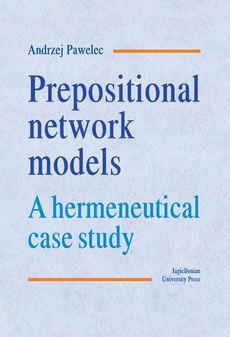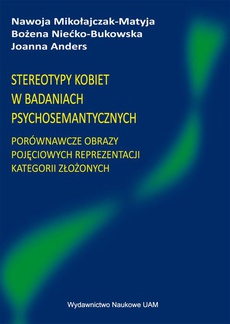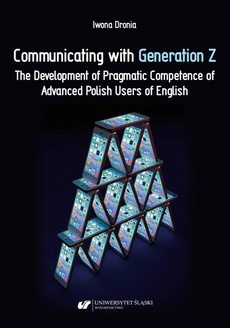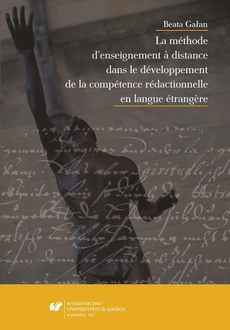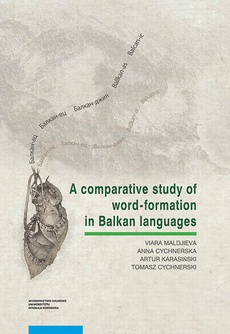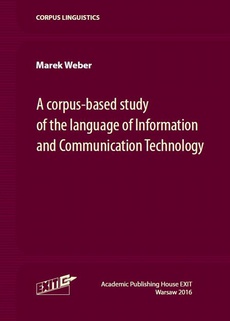POLECAMY
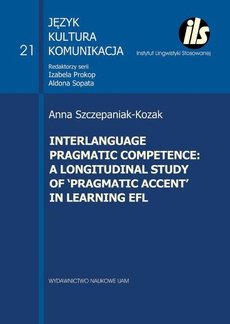
Interlanguage programic competence: a longitudinal study of ‘pragmatic accent’ in learning EFL
Autor:
Format:
ibuk
Książka prezentuje nabywanie kompetencji pragmatycznej w języku obcym w ujęciu teoretycznym i empirycznym. Jest pierwszą tego typu pracą, która rozpatruje procesy rządzące nabywaniem pragmatyki obcojęzycznej w odniesieniu do Polaków uczących się języka angielskiego. Publikacja opiera się na najnowszych teoriach dotyczących nabywania pragmatyki języka obcego oraz prezentuje badanie przekrojowe i wzdłużne, polegające na obserwacji osób uczących się tego języka. Analiza danych pokazuje, że chociaż kompetencja pragmatyczna polskich użytkowników języka angielskiego wykazuje wiele punktów zbieżnych z uczniami, którzy reprezentują inne języki pierwsze, to istnieje wiele cech charakterystycznych tylko dla tej grupy uczących się. Autorka tłumaczy typowe dla Polaków użycie zasobów pragmalingwistycznych istnieniem „akcentu pragmatycznego”. Akcent pragmatyczny powoduje, że przy ich doborze Polacy kierują się większą liczbą czynników socjopragmatycznych niż rodzimi użytkownicy języka angielskiego. Akcent pragmatyczny obejmuje cechy wynikające z negatywnego transferu i/lub nadmiernej generalizacji niektórych form istniejących w języku angielskim, które ulegają fosylizacji na wczesnym etapie uczenia się.
| Rok wydania | 2018 |
|---|---|
| Liczba stron | 440 |
| Kategoria | Językoznawstwo |
| Wydawca | Wydawnictwo Naukowe Uniwersytetu im. Adama Mickiewicza |
| ISBN-13 | 978-83-232-3298-8 |
| Numer wydania | 1 |
| Język publikacji | angielski |
| Informacja o sprzedawcy | ePWN sp. z o.o. |
Ciekawe propozycje
Spis treści
| Acknowledgements 9 | |
| List of abbreviations 11 | |
| Preliminaries 13 | |
| Basic assumptions | 13 |
| Basic terms | 14 |
| Study aims | 16 |
| Unit of analysis: PC operationalization in the present study | 17 |
| Overview of the book | 19 |
| Chapter 1. Pragmatics and learning a foreign language 21 | |
| 1.0. Introduction | 21 |
| 1.1. Pragmatics and macropragmatics | 22 |
| 1.2. Theories of verbal politeness and impoliteness | 27 |
| 1.3. Context of situation | 39 |
| 1.4. Formulaic language | 42 |
| 1.5. Intercultural and pragmatic misunderstandings | 45 |
| 1.6. Competence and communicative competence | 48 |
| 1.7. Pragmatic competence | 51 |
| 1.8. Interplay between culture and pragmatics in the classroom | 56 |
| 1.9. Final reflections | 57 |
| Chapter 2. Interlanguage pragmatics 58 | |
| 2.0. Introduction | 58 |
| 2.1. Defining interlanguage: Past and present approaches | 60 |
| 2.2. Scope of interlanguage pragmatics and cross-cultural pragmatics | 66 |
| 2.3. Interlanguage pragmatics | 68 |
| 2.4. Processes within interlanguage pragmatics | 69 |
| 2.4.1. Transfer, fossilization and backsliding | 70 |
| 2.4.2. Overgeneralization | 74 |
| 2.4.3. Over-elaboration | 76 |
| 2.4.4. Avoidance and achievement strategies | 77 |
| 2.5. Native and non-native speaker pragmatic competence | 78 |
| 2.6. Pragmatic competence and language proficiency | 85 |
| 2.7. Pragmatic competence in a third and further language | 87 |
| 2.8. Final reflections | 91 |
| Chapter 3. The development of pragmatic competence 92 | |
| 3.0. Introduction | 92 |
| 3.1. Awareness and teaching pragmatics of a foreign language | 93 |
| 3.2. Cognitive processes in learning pragmatics | 100 |
| 3.3. Developing pragmatic competence in second language settings | 102 |
| 3.4. Developing pragmatic competence in foreign language settings | 107 |
| 3.5. Premises for effective PC development in the foreign language classroom | 114 |
| 3.6. Designing PC instruction in the foreign language classroom | 116 |
| 3.7. Textbooks and material design in developing PC | 127 |
| 3.8. Final reflections | 132 |
| Chapter 4. Requests in English and Polish: A pragmalinguistic and sociopragmatic description 134 | |
| 4.0. Introduction | 134 |
| 4.1. Requests as speech acts | 135 |
| 4.2. Constitutive elements of requests | 137 |
| 4.2.1. Head act | 139 |
| 4.2.2. Internal mitigation | 144 |
| 4.2.3. External mitigation | 148 |
| 4.3. Requests in English | 153 |
| 4.4. Requests in Polish | 160 |
| 4.5. Final reflections: Dimensions of cultural differences in the present study | 172 |
| Chapter 5. Studies of requests: Cross-cultural and interlanguage perspective 175 | |
| 5.0. Introduction | 175 |
| 5.1. Discourse completion task | 176 |
| 5.2. Cross-cultural studies of requests | 181 |
| 5.3. Contrastive pragmatics studies involving Polish EFL speakers | 183 |
| 5.4. Longitudinal studies of interlanguage pragmatics of non-native speakers | 187 |
| 5.5. Interlanguage pragmatics with regard to Polish learners | 197 |
| 5.6. Final reflections | 200 |
| Chapter 6. The methodological setup of the research | 202 |
| 6.0. Introduction | 202 |
| 6.1. Rationale behind the research | 204 |
| 6.2. Design of the research | 207 |
| 6.3. Participants in the longitudinal qualitative study | 216 |
| 6.4. Participants in the cross-sectional quantitative study | 219 |
| 6.5. Research instruments: DCT and MDCT | 220 |
| 6.6. Independent variables in the measurement instruments | 230 |
| 6.7. Research questions | 238 |
| 6.8. Data analysis procedures | 241 |
| 6.9. Final reflections | 244 |
| Chapter 7. How Poles learn PC in EFL: Data analysis 247 | |
| 7.0. Introduction | 247 |
| 7.1. Data overview – the cohort study | 247 |
| 7.2. Changes in the cohort’s PC over independent variables (RQ 1) | 256 |
| 7.2.1. Distribution of requestive data across independent variables: A qualitative analysis | 257 |
| 7.2.2. Distribution of requestive data across independent variables: A quantitative analysis | 278 |
| 7.2.3. Utterance length per scenario | 279 |
| 7.2.4. Conclusions to RQ 1 | 281 |
| 7.3. Changes in the cohort’s PC in subsequent years (RQ 2) | 289 |
| 7.3.1. Analysis of the scenarios from longitudinal perspective | 290 |
| 7.3.2. Conclusions to RQ 2: Research sub-questions answered | 312 |
| 7.4. Interlanguage processes (RQ 3) | 331 |
| 7.4.1. Interlanguage processes in the corpus | 332 |
| 7.4.2. Conclusions to RQ 3 | 345 |
| 7.5. Conclusions to the cohort study | 346 |
| 7.6. Data overview – the cross-sectional study | 352 |
| 7.6.1. Analysis of the cross-sectional data | 354 |
| 7.6.2. Conclusions to the survey study | 357 |
| 7.7. Spin-off from research from research into PC of teachers | 358 |
| 7.8. Conclusions to the mixed-methods study: Indicators of ‘pragmatic accent’ | 360 |
| End matter | 367 |
| Summary of findings | 367 |
| Implications | 368 |
| Theoretical implications | 369 |
| Methodological implications | 370 |
| Pedagogical implications | 371 |
| Limitations to the study and future perspectives | 375 |
| References 379 | |
| Appendices 407 | |
| Interjęzykowa kompetencja pragmatyczna: ‘Akcent pragmatyczny’ w podłużnym studium nabywania języka angielskiego jako obcego w Polsce (Streszczenie) | 439 |











